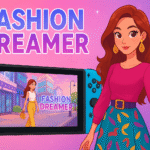Hair loss can be a distressing experience for both men and women, affecting not just appearance but also self-esteem. Among the various types of hair loss conditions, alopecia is one of the most common and diverse. It can range from mild thinning to complete baldness, depending on its type and underlying causes. Fortunately, with modern advances in hair restoration, there are several effective alopecia treatments available today that can help manage and even reverse hair loss. Before beginning any treatment, however, it is essential to understand the causes, available options, and what to expect during the process. For residents in North Carolina, consulting a trusted Raleigh hair replacement clinic can be the first step toward restoring hair health and confidence.
Understanding Alopecia and Its Types
Alopecia refers to hair loss that occurs when the body’s immune system mistakenly attacks hair follicles or when other factors such as hormones, genetics, or stress disrupt the normal hair growth cycle. There are several forms of alopecia, each with different symptoms and treatment needs. Alopecia areata causes patchy hair loss that may appear suddenly, while androgenetic alopecia, commonly known as male or female pattern baldness, leads to gradual thinning over time. Other types include traction alopecia, caused by excessive pulling from hairstyles, and telogen effluvium, which results from stress or hormonal imbalances. Understanding the type of alopecia you are experiencing is vital to choosing the right treatment plan.
Causes and Risk Factors
Hair loss linked to alopecia can stem from multiple causes. Genetics often play a major role, particularly in androgenetic alopecia. Hormonal changes during pregnancy, menopause, or thyroid disorders can also trigger shedding. Autoimmune reactions, as seen in alopecia areata, lead the body to attack its own follicles. Environmental factors, nutritional deficiencies, and chronic stress can further exacerbate the condition. A thorough assessment at a reputable Raleigh hair replacement clinic can help identify the root cause and guide the appropriate treatment strategy.
Consulting a Raleigh Hair Replacement Clinic
Before starting any alopecia treatment, it is crucial to consult an experienced hair restoration specialist. A Raleigh hair replacement clinic typically begins with a comprehensive scalp and hair analysis to determine the cause, severity, and pattern of hair loss. The specialist may also request blood tests or medical history details to rule out underlying conditions. This initial evaluation is essential for tailoring a treatment plan suited to each patient’s unique situation. Clinics that specialise in hair replacement often combine medical expertise with advanced technology to provide effective and long-lasting results.
Available Alopecia Treatments
Alopecia can be managed using a range of medical, surgical, and non-surgical approaches. The choice depends on the type and severity of hair loss, as well as patient preferences. Below are some of the most common treatment options offered by modern Raleigh hair replacement clinics.
Topical and Oral Medications
For early-stage alopecia, medications are often the first line of defence. Topical solutions like minoxidil help stimulate hair growth and prevent further thinning. It is one of the most widely used treatments for both men and women. In some cases, oral medications such as finasteride are prescribed for male patients to block hormones that cause follicle shrinkage. These medications must be used consistently for optimal results and are most effective when started early.
Platelet-Rich Plasma (PRP) Therapy
PRP therapy is a popular non-surgical option for treating alopecia. It involves drawing a small amount of the patient’s blood, processing it to isolate growth factors, and injecting it into the scalp. These growth factors help stimulate dormant hair follicles and promote natural regrowth. PRP therapy is minimally invasive and can be used alongside other treatments for enhanced results. Many Raleigh hair replacement clinics offer PRP sessions as part of their comprehensive hair restoration programs.
Low-Level Laser Therapy (LLLT)
Low-Level Laser Therapy is a non-invasive approach that uses light energy to stimulate cellular activity in hair follicles. This therapy helps improve blood flow to the scalp, strengthens existing hairs, and supports the growth of new ones. It is painless and requires no downtime, making it a suitable option for patients who prefer a gentle but effective solution to hair thinning.
Hair Transplant Surgery
For advanced cases of hair loss, surgical options like follicular unit extraction (FUE) or follicular unit transplantation (FUT) can offer permanent results. These procedures involve transferring healthy hair follicles from a donor area to the thinning or bald regions. Modern techniques allow for natural-looking results with minimal scarring and downtime. A Raleigh hair replacement clinic that specialises in surgical procedures can assess whether you are a suitable candidate for transplantation based on donor hair availability and scalp condition.
Scalp Micropigmentation
Scalp micropigmentation (SMP) is a non-surgical aesthetic solution that involves applying microdots of pigment to the scalp to replicate the appearance of natural hair follicles. It is ideal for patients with thinning hair or those who are not suitable candidates for transplantation. SMP provides a fuller appearance and is often combined with other treatments to enhance the overall effect.
Factors to Consider Before Starting Treatment
When considering alopecia treatments, several factors should be taken into account. Your type of alopecia, age, overall health, and expectations will influence the treatment plan. It is also essential to set realistic goals, as some therapies may take several months to show visible improvement. Consistency is key—discontinuing treatment prematurely can reverse any progress made. Additionally, working with an experienced specialist ensures that the chosen treatment is safe, effective, and tailored to your needs.
The Importance of Ongoing Maintenance
Managing alopecia often requires ongoing care even after initial improvement. Regular follow-up visits to your Raleigh hair replacement clinic allow your specialist to monitor progress and adjust treatment as needed. Maintaining a balanced diet, managing stress, and practising good scalp hygiene can further support healthy hair growth. Using the right hair care products, such as gentle shampoos and nourishing serums, can also help maintain results over the long term.
Emotional and Psychological Support
Hair loss can take a toll on emotional wellbeing. Many individuals with alopecia experience anxiety, frustration, or self-consciousness. Seeking support from a mental health professional, joining support groups, or talking with others who have undergone similar experiences can be beneficial. Reputable clinics often provide not only medical solutions but also emotional support to help patients regain confidence throughout their treatment journey.
Final Thoughts
Before starting alopecia treatments, it’s important to approach the process with a clear understanding of your condition, realistic expectations, and guidance from qualified professionals. Consulting a trusted Raleigh hair replacement clinic ensures you receive a tailored treatment plan that addresses the root cause of your hair loss while prioritising long-term results. Whether through topical medications, PRP therapy, laser treatments, or hair transplantation, today’s advancements in hair restoration make it possible to restore not just your hair, but also your confidence. With consistency, expert care, and patience, managing alopecia effectively is entirely achievable.



